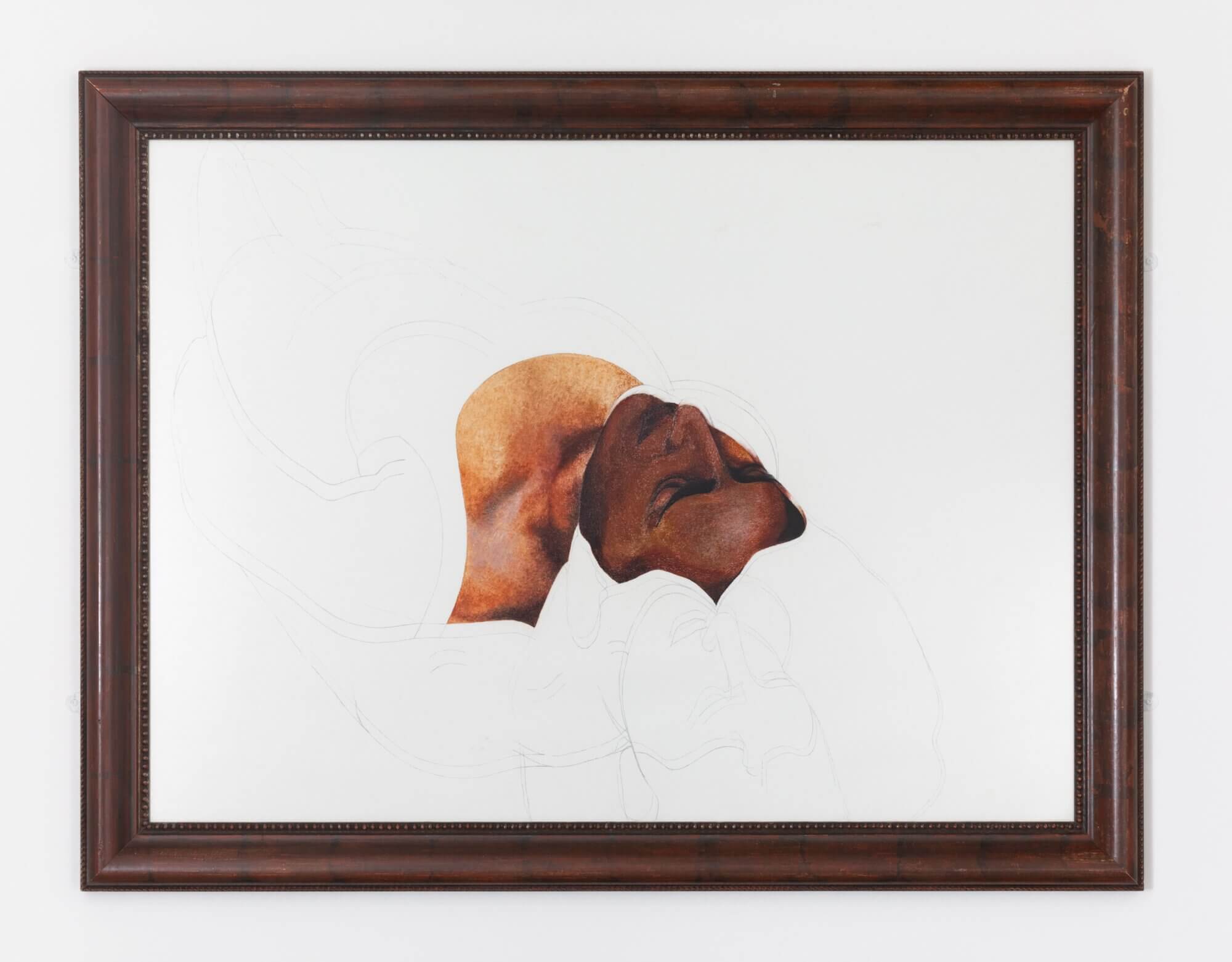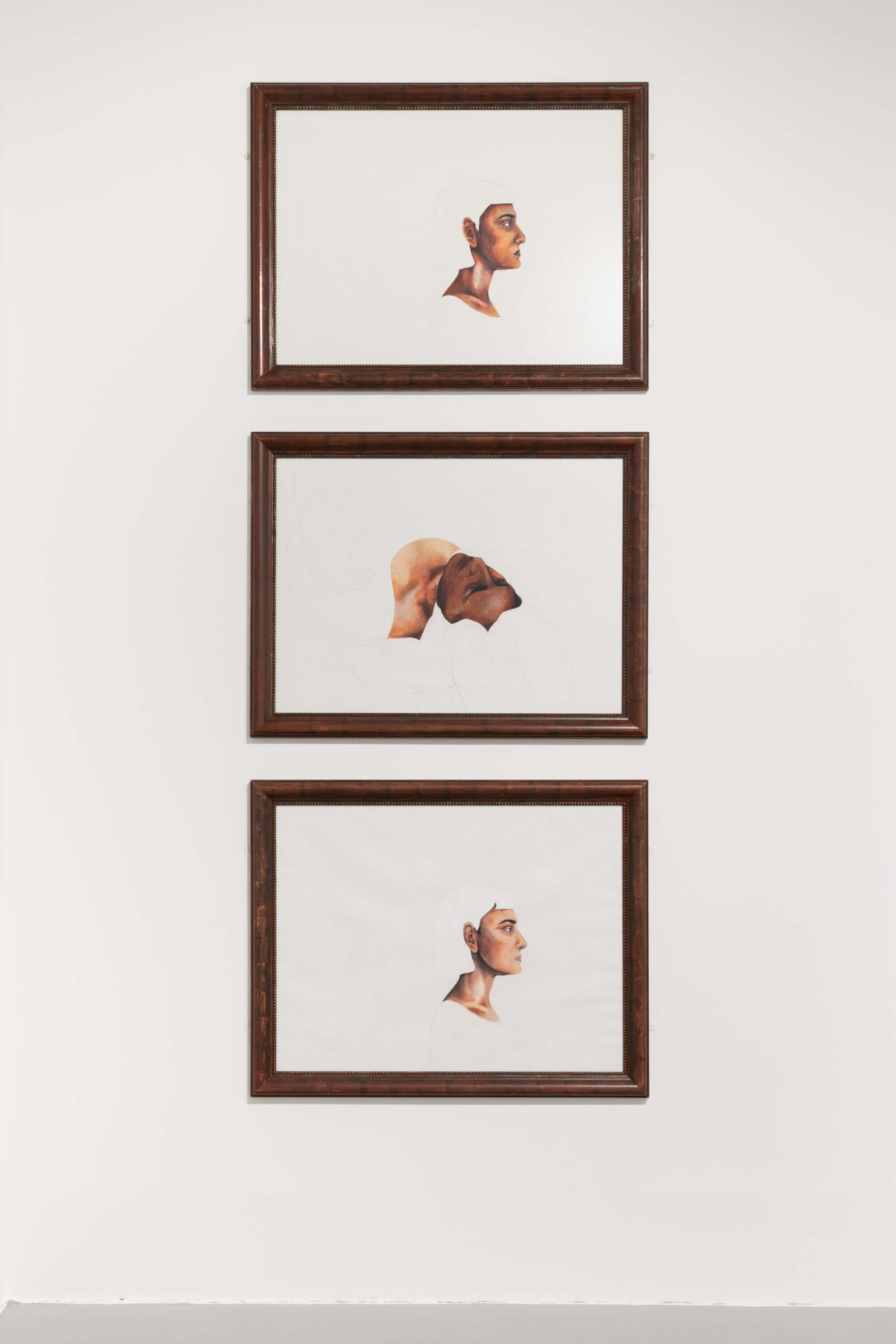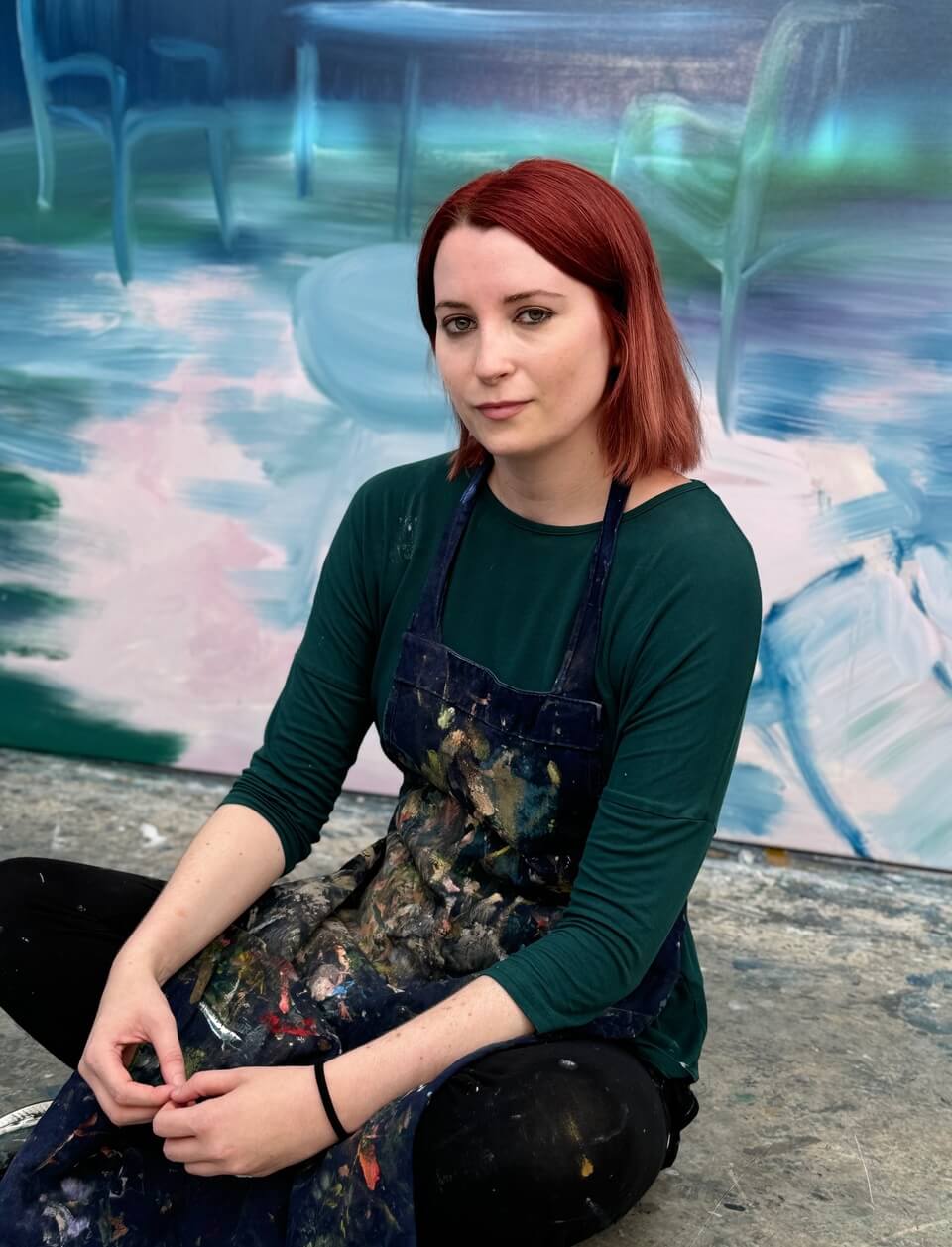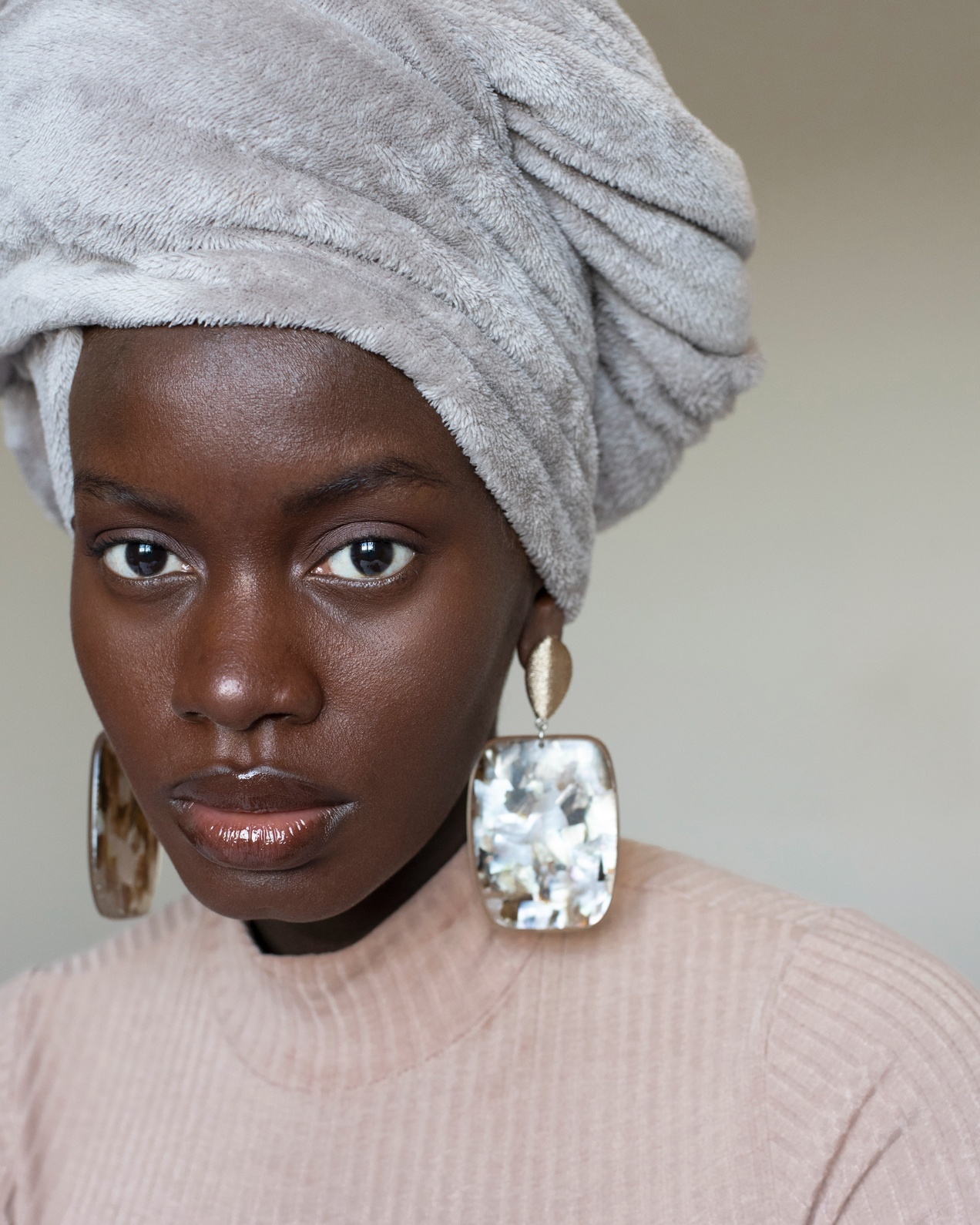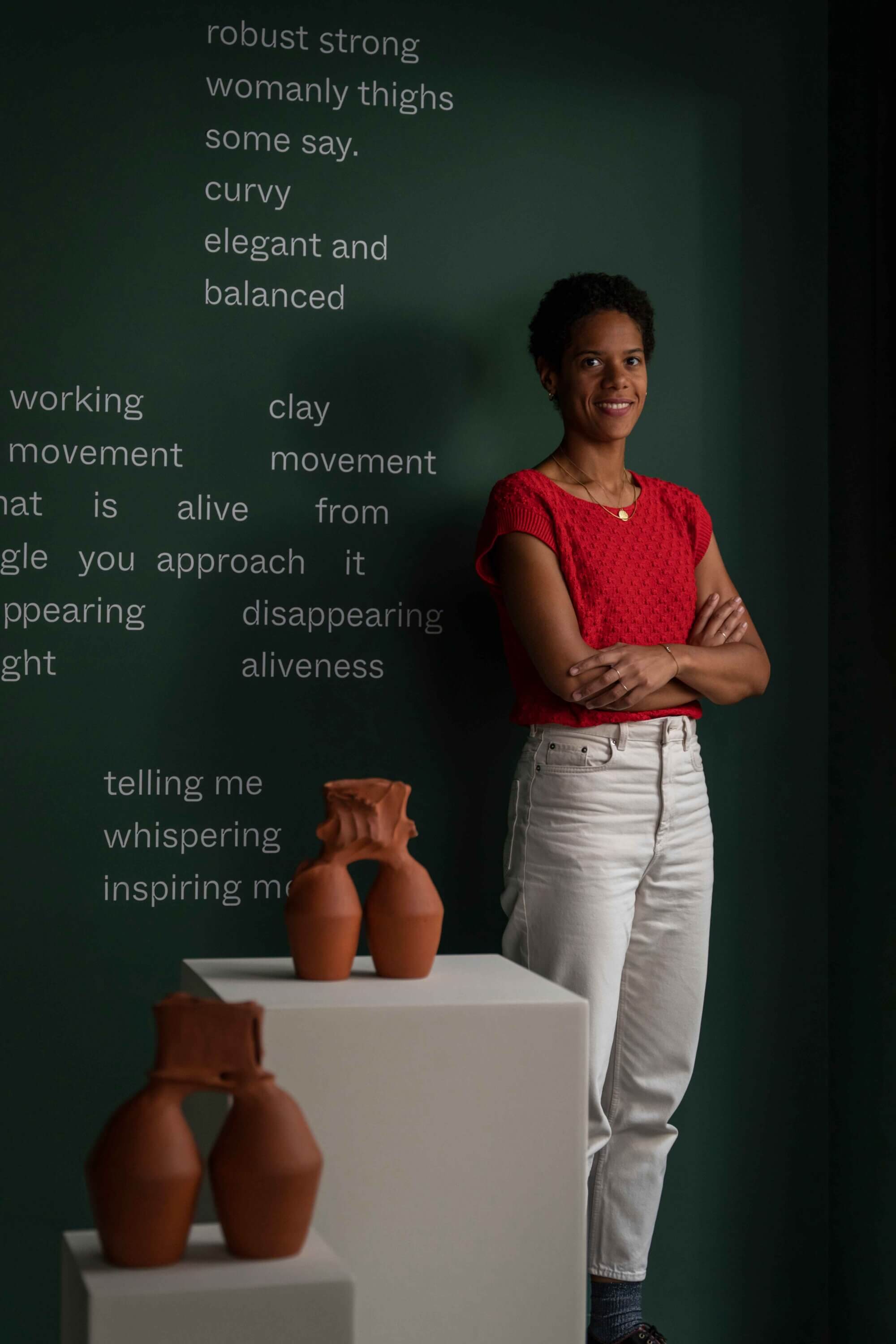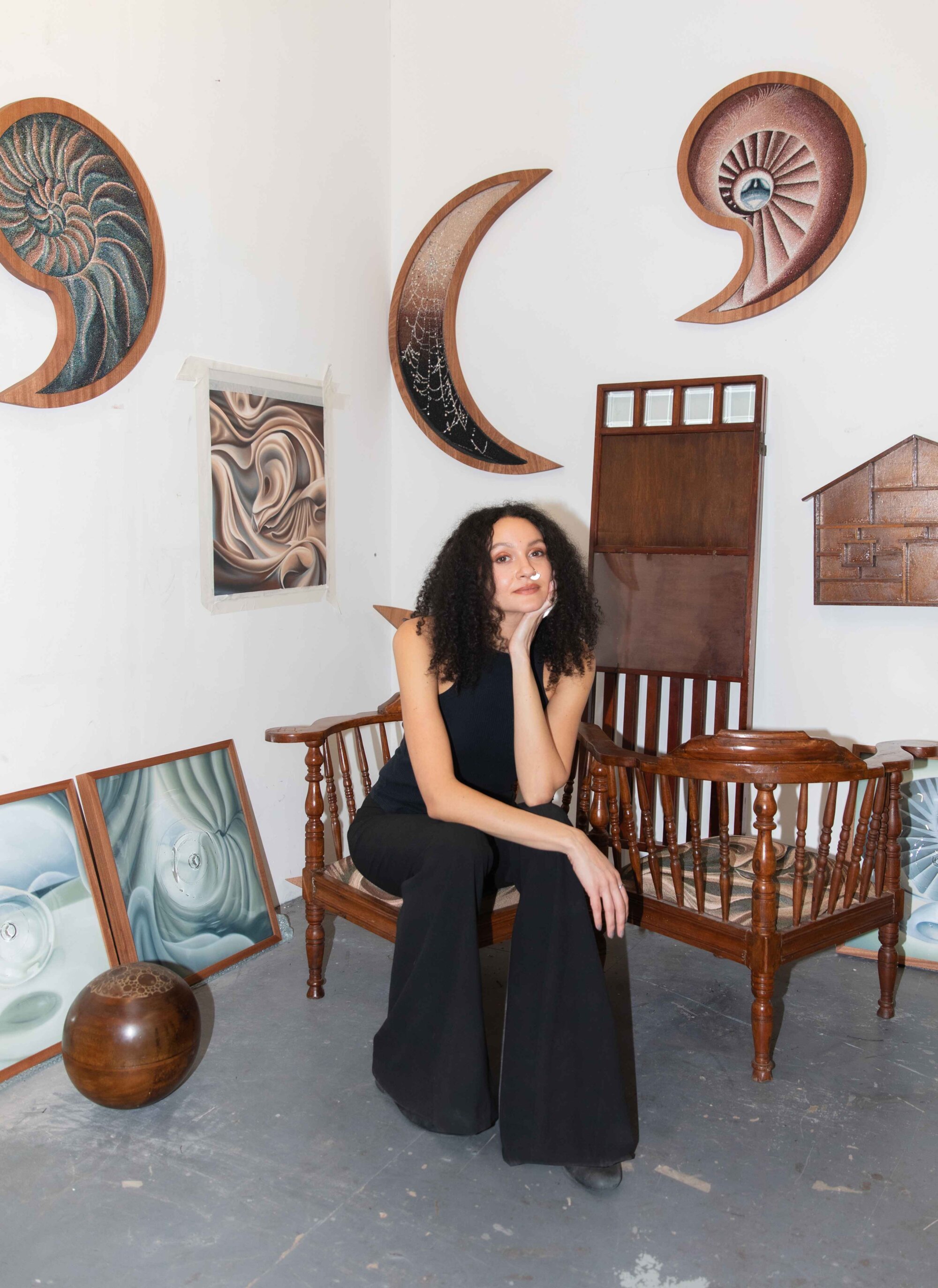Spotlight artist Sutapa Biswas
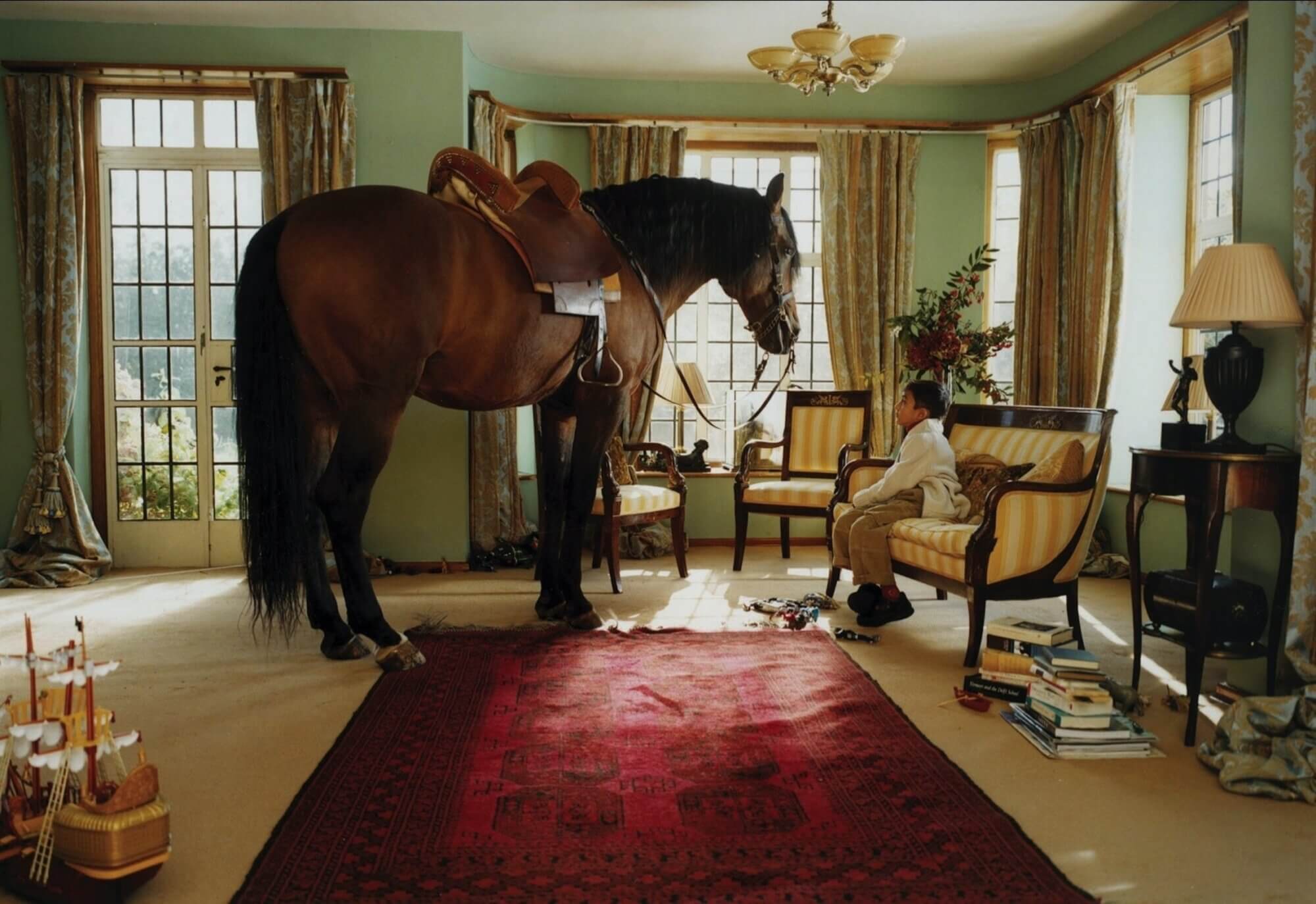
WATCH
WATCH
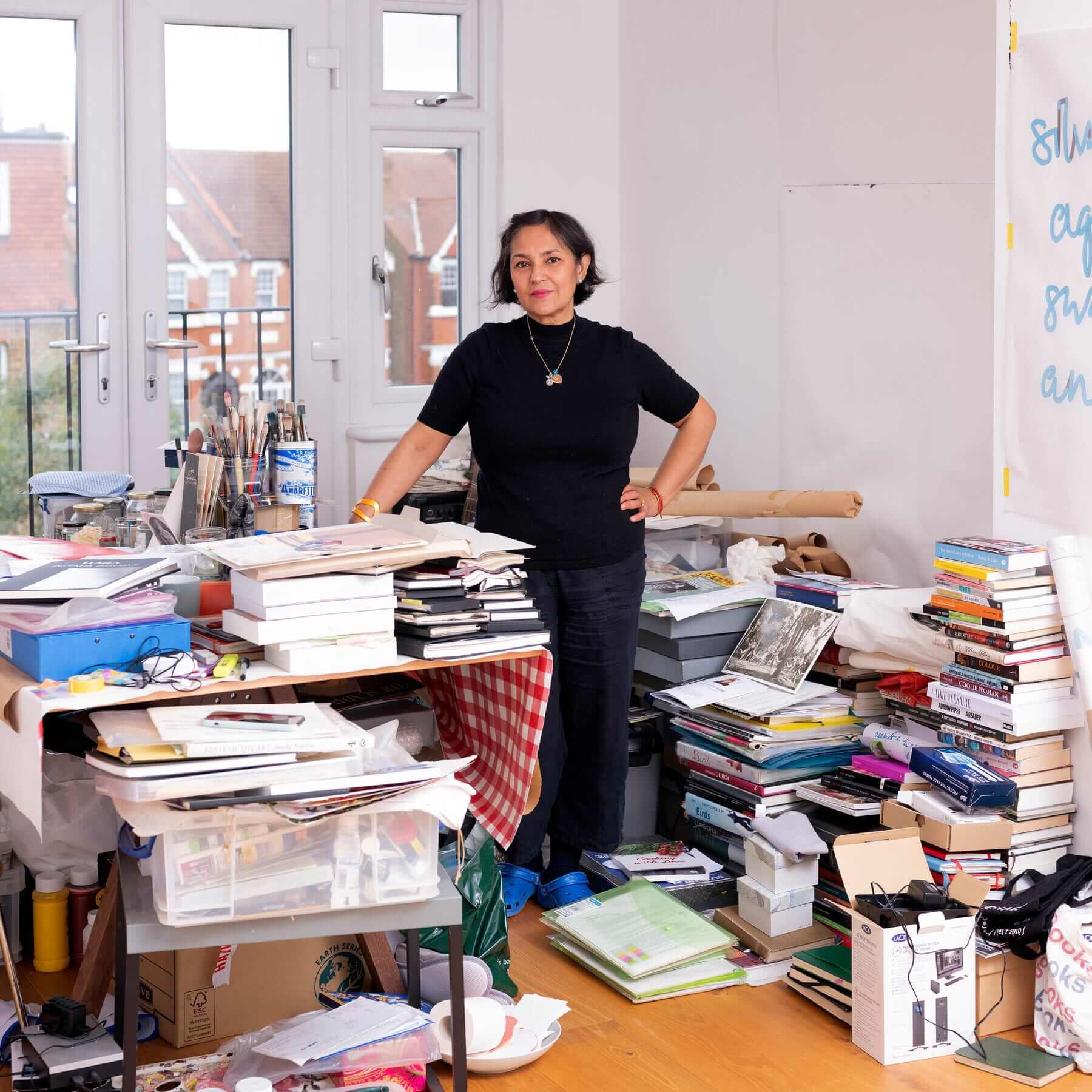
As Biswas’ champion for The Wick, Griselda Pollock, points out: “Biswas is one of the most brilliant and multi-faceted artists working internationally from Britain today.” When Biswas, 61, was still a student of Fine Art at the University of Leeds, Pollock recalls, “she declared, and first realized, her ambitious project as an artist in two major works: a filmed performance of Hindu characters exorcising imperial cruelty titled Kali (complete with her own response to Jasper Johns’ Flag paintings) and an iconic large painting in brilliant pastel colour on white paper bearing the title Housewives with Steak-knives” – the two works included in Women in Revolt!recognition, some three decades later, of their importance in the evolution of art, and a decolonial, feminist art practice, in Britain.
Over a forty-year career, Biswas has employed a range of materials – including, but not limited to, pastel and drawing, performance, video, photography, watercolour, and “full-screen cinematic film, ranging from the intimate to the monumental. She makes works of seductively stunning visual beauty and breathtaking aesthetic inventiveness to prompt us to reflect on the still-present legacies of shocking historical realities that reshaped the Indian subcontinent’s destiny when so many European adventurers arrived to extract its wealth (Lumen) and to study exotic plants, flowers and fauna.” Pollock tells The Wick.
“Her work reframes that past through the lens of a contemporary child transplanted under political exile to England in the 1960s as Britain unevenly confronted its own past and, at times, still violently inhospitable present. Using the beauty of her deep artistic intelligence, Sutapa Biswas seduces us into ethical reflection with deep personal affects. She reclaims the female body as an alphabet for memory (Synapse) and borrows a Shakespearean voice to honour her mother’s forced exile from India and her own retracing of that journey with a sharpened eye made tender with love and longing (Lumen).”
Biswas herself adds that “I’m influenced by a range of sources including poetry, art history – which I studied as an undergraduate, film and literature. My works focuses on the human condition, and I’m especially interested in exploring the ways in which the larger historical narratives from across the globe collide with the often-undocumented personal stories. My practice questions the complexities of racial and gendered power relations born out of tangled colonial histories – especially, but not exclusively, regarding India and Europe. Often incorporating archival material from museum collections, like fabric raveling and unraveling, my desire is to weave these different elements conceptually across time, histories and space within my works.”
Biswas’ galvanising and generous work continues – a few major projects are in development, the artist notes, including a forthcoming collaboration with the Government Art Collection, and Norwich University of the Arts, UK where she is currently the East Gallery Fellow. Biswas returns to Tate Britain, imminently too – with the major upcoming survey, The 80s: Photographing Britain, due to open on 21 November. Several large-scale, handprinted photographic works from her series Synapse will be displayed. The works return to London decades after they were first presented to the public at Biswas’ solo exhibition in 1992 at the Photographer’s Gallery – proof of her perennial, unfading relevance and the timelessness of her themes. No doubt Biswas’ works will continue to find their way into the hearts and minds of new audiences for generations to come. As Pollock has it: “a history painter and a visual poet, Biswas, like all great artists, takes us to new places and always surprises us with her new destinations.”
About the champion
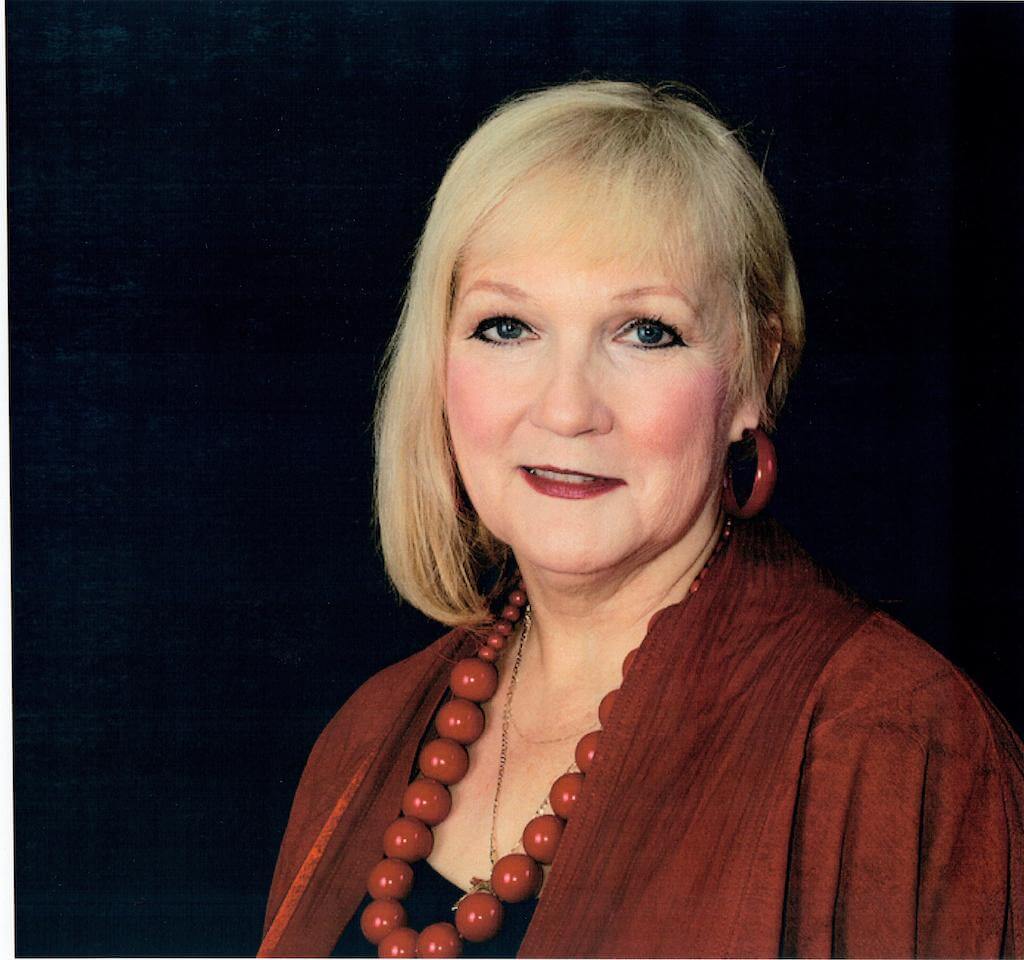
Griselda Pollock is a renowned art historian and scholar, known for influential, pioneering feminist approaches to art history. Pollock is the founding director of the Centre for Cultural Analysis, Theory, and History at the University of Leeds. Awards include the CAA Distinguished Feminist Award for Promoting Equality in Art and Distinguished Lifetime Achievement Award for Writing on Art. Recent publications include On Gauguin (London and New York: Thames & Hudson, 2024), Medium & Memory:Eight Artists: Four Conversations (HackelBury Fine Art, 2023) and Woman in Art: Helen Rosenau’s ‘Little Book’ of 1944 (London: Paul Mellon Centre ). Pollock’s forthcoming book, Feminism, Pedagogy and the Studio: Reflections Across Four Decades will be published with Sternberg Press in 2024.
“Sutapa Biswas, like all great artists, takes us to new places and always surprises us with her new destinations”
Griselda Pollock
